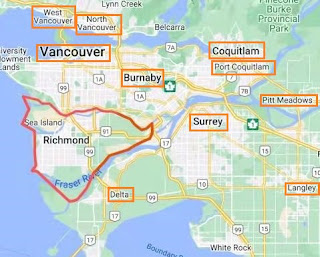Richmond Real Estate Market


Statutory Rights of Way: Statutory rights of way are rights that a
municipal or industrial users has over certain lands. The most common example of statutory rights of way include
statutory rights of way in favour of municipalities to maintain sidewalks and
other public access over lands, statutory rights of way in favour of
municipalities to allow for the construction, operation and maintenance of
utilities such as sewer and water lines or statutory rights of way in favour of
telecommunications companies to allow for the construction, operation and
maintenance of fibre optic cables and other telecommunications infrastructure.
Restrictive Covenants: A restrictive covenant imposes a restriction on the use of
one person’s land for the benefit of another piece of land. As with an
easement, a restrictive covenant run with the land too.
Building Scheme: A building scheme refers to a set of restrictive covenants
imposed on two or more lots within a particular subdivision.
Caveat: A caveat is a
notice registered against the title by a person claiming an estate or interest
in that land that prevents all dealings like transfers, mortgages etc. A caveat
remains on the register for two months and lapses automatically at the end of
that time.
Certificate of Pending Litigation: A certificate of pending litigation provides notice to anyone
searching title that a court action has been commenced concerning the property.
Builders Lien: Builder’s liens may be registered by persons who have
provided work or material under a contract for improvements to the land and who
have not been paid. Registration of a builders’ lien is not evidence of the
debt outstanding, but the builders’ liens may only be discharged after the
owner resolves the dispute underlying the claim of builders’ lien or by paying
the disputed amount into court to secure a discharge of the builders’ lien.
Since builders’ liens can be filed at any time up to 45 days after the work has
been completed, when buying a newly constructed or renovated home or building,
it may be possible for title to be clear of registered builders’ liens during
the due diligence period, but for the lien to be filed following completion of
the purchase and sale.
Judgment: A judgment may be registered on title, indicating that a
court has awarded a judgment in favour of the charge holder against the registered
owner, and that the amount payable under such judgment is outstanding and not yet
paid.
Duplicate Certificate of Title: It has to be with notation “ None Outstanding”. If a
duplicate certificate of title is issued and removed form the land title office,
the registrar will not register a transfer, mortgage or long term lease on that
title.
Heritage Designation: A property can be designated as a heritage site. Once
designated, demolition, relocation and alteration of both the interior and
exterior of the property are regulated and prohibited generally.
Comments
Post a Comment